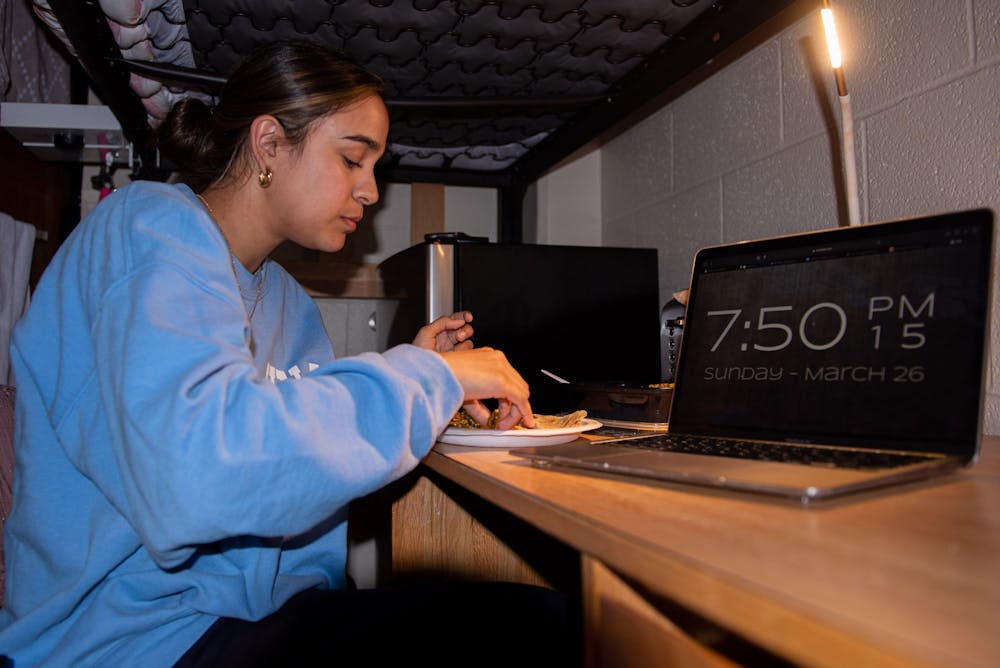As dusk descended on Murray Hall last Thursday, students gathered to celebrate Ramadan, a holy month for Muslims marked by deep spiritual reflection, prayer, community and fasting during daylight hours.
UNC Muslim Students Association (MSA) provided chicken and steak kebabs, salad, rice and pita to observing students for the first iftar of Ramadan — the fast-breaking meal.
A student called everyone to prayer, his voice prompting a sweeping silence across the crowd of roughly a hundred.
“I don’t have any words at that moment,” Manaal Iqbal, MSA’s recently elected president, said at the event. “It’s just amazing how quiet everyone gets, and we’re all just here together.”
Ramadan’s origins trace back to the seventh century when Muslims believe that the first few verses of the Quran, Islam’s sacred text, were revealed to the Prophet Muhammad. It is the ninth month of the Islamic calendar, which differs by year according to the lunar cycle.
Fasting is one of the five pillars of Islam, joining prayer, the profession of faith, pilgrimage to Mecca and alms — donations to the community. Although fasting is considered mandatory, there are exceptions for young children, the elderly and those who are ill, menstruating or pregnant.
The practice of fasting is seen as a means of spiritual discipline and an opportunity to connect deeper with Allah.
Abdur Rahman, a business administration graduate student, said his Ramadan practice includes developing patience and empathy and working through struggles and stress.
“I personally think it’s the best month of the year,” he said, noting that it gives him the opportunity to pause and reflect.



